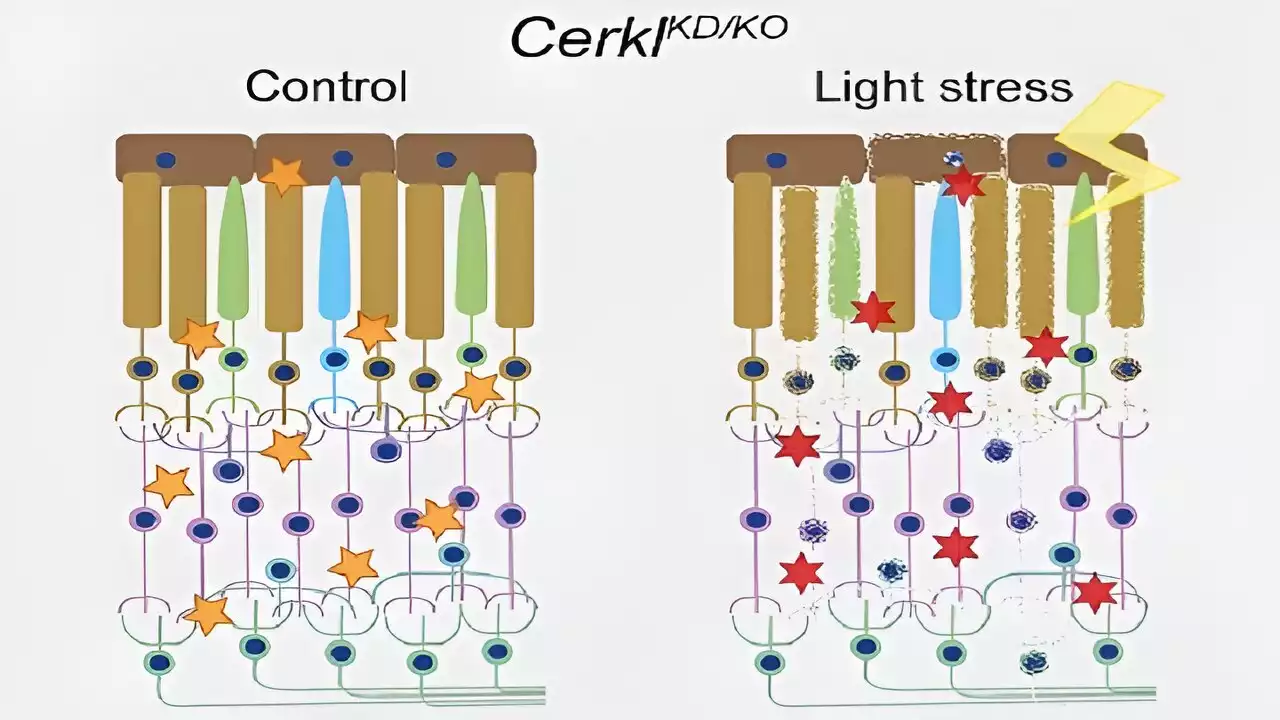Researchers in New York identified the process for the oxytocin release in mother mice.
A mechanism in the brain could explain why some breastfeeding mothers leak milk when their baby cries and why they continue to care for infants even when tired.
They found cries from mouse pups travelled to an area of the mother’s brain known as the posterior intralaminar nucleus of the thalamus , a sensory hub that then sends signals to brain cells in another region called the hypothalamus, which controls hormone activity. The mothers’ brains only responded to their own offspring’s crying and not computer-generated sounds.
United Kingdom Latest News, United Kingdom Headlines
Similar News:You can also read news stories similar to this one that we have collected from other news sources.
 Gaining new insights into neurological diseases by studying circular RNAs in brain cellsResearchers are gaining new insights into neurological diseases by studying circular RNAs (circRNAs) in brain cells.
Gaining new insights into neurological diseases by studying circular RNAs in brain cellsResearchers are gaining new insights into neurological diseases by studying circular RNAs (circRNAs) in brain cells.
Read more »
 Researchers find new mechanisms that cause blindness and open the door to new treatmentsThere are still many enigmas about the mechanism of action of the CERKL gene, which causes retinitis pigmentosa and other hereditary vision diseases. Now, a team from the University of Barcelona has described how the lack of the CERKL gene alters the ability of retinal cells to fight oxidative stress generated by light and triggers cell death mechanisms that cause blindness.
Researchers find new mechanisms that cause blindness and open the door to new treatmentsThere are still many enigmas about the mechanism of action of the CERKL gene, which causes retinitis pigmentosa and other hereditary vision diseases. Now, a team from the University of Barcelona has described how the lack of the CERKL gene alters the ability of retinal cells to fight oxidative stress generated by light and triggers cell death mechanisms that cause blindness.
Read more »
 Researchers discover possible new treatment for triple-negative breast cancerZachary Schug, Ph.D., assistant professor in the Molecular and Cellular Oncogenesis Program of the Ellen and Ronald Caplan Cancer Center at The Wistar Institute, has published a new paper in the journal Nature Cancer. Schug's paper, titled 'Acetate acts as a metabolic immunomodulator by bolstering T-cell effector function and potentiating antitumor immunity in breast cancer,' demonstrates a double-acting mechanism for fighting a particularly aggressive, difficult-to-treat form of breast cancer. Schug's research shows how silencing a certain gene, ACSS2, may improve existing treatments for patients.
Researchers discover possible new treatment for triple-negative breast cancerZachary Schug, Ph.D., assistant professor in the Molecular and Cellular Oncogenesis Program of the Ellen and Ronald Caplan Cancer Center at The Wistar Institute, has published a new paper in the journal Nature Cancer. Schug's paper, titled 'Acetate acts as a metabolic immunomodulator by bolstering T-cell effector function and potentiating antitumor immunity in breast cancer,' demonstrates a double-acting mechanism for fighting a particularly aggressive, difficult-to-treat form of breast cancer. Schug's research shows how silencing a certain gene, ACSS2, may improve existing treatments for patients.
Read more »
 Researchers identify new blood marker for dopamine system damageThe marker in question is called DOPA decarboxylase (DCC). In the current study, DCC was found to be elevated in individuals with Parkinson's disease as well as in people with other diseases that result in dopamine deficiency in the brain. However, the marker was normal in other brain diseases such as Alzheimer's disease. The researchers even noticed that DCC was elevated in individuals with Parkinson's many years before they developed any symptoms.
Researchers identify new blood marker for dopamine system damageThe marker in question is called DOPA decarboxylase (DCC). In the current study, DCC was found to be elevated in individuals with Parkinson's disease as well as in people with other diseases that result in dopamine deficiency in the brain. However, the marker was normal in other brain diseases such as Alzheimer's disease. The researchers even noticed that DCC was elevated in individuals with Parkinson's many years before they developed any symptoms.
Read more »
 Cancer surgery survivor helping researchers in new studySharon Applin had all the organs in her pelvis removed and wants her experience to aid other patients.
Cancer surgery survivor helping researchers in new studySharon Applin had all the organs in her pelvis removed and wants her experience to aid other patients.
Read more »
